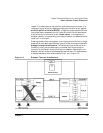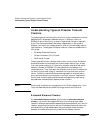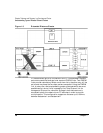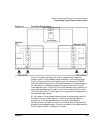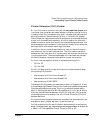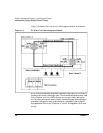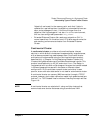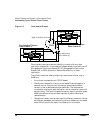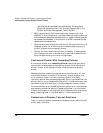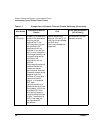
Disaster Tolerance and Recovery in a Serviceguard Cluster
Understanding Types of Disaster Tolerant Clusters
Chapter 1 25
Benefits of CLX
• CLX offers a more resilient solution than Extended Distance Cluster,
as it provides complete integration between Serviceguard’s
application package and the data replication subsystem. The storage
subsystem is queried to determine the state of the data on the
arrays.
CLX knows that application package data is replicated between two
data centers. It takes advantage of this knowledge to evaluate the
status of the local and remote copies of the data, including whether
the local site holds the primary copy or the secondary copy of data,
whether the local data is consistent or not and whether the local data
is current or not. Depending on the result of this evaluation, CLX
decides if it is safe to start the application package, whether a
resynchronization of data is needed before the package can start, or
whether manual intervention is required to determine the state of
the data before the application package is started.
CLX allows for customization of the startup behavior for application
packages depending on your requirements, such as data currency or
application availability. This means that by default, CLX will always
prioritize data consistency and data currency over application
availability. If, however, you choose to prioritize availability over
currency, you can configure CLX to start up even when the state of
the data cannot be determined to be fully current (but the data is
consistent).
• CLX XP supports synchronous and asynchronous replication modes,
allowing you to prioritize performance over data currency between
the data centers.
• Because data replication and resynchronization are performed by the
storage subsystem, CLX may provide significantly better
performance than Extended Distance Cluster during recovery.
Unlike Extended Distance Cluster, CLX does not require any
additional CPU time for data replication, which minimizes the
impact on the host.
• There is little or no lag time writing to the replica, so the data
remains current.
• Data can be copied in both directions, so that if the primary site fails
and the replica takes over, data can be copied back to the primary
site when it comes back up.



